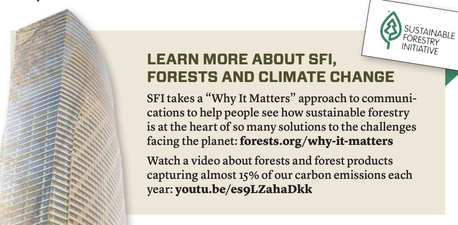Forests Are a Growing Solution to Climate Change
From climate-smart forestry to mass timber buildings, forests are mitigating climate change
By Jason Metnick, Senior Vice President of
Customer Affairs at the Sustainable Forestry Initiative
Summer 2021



